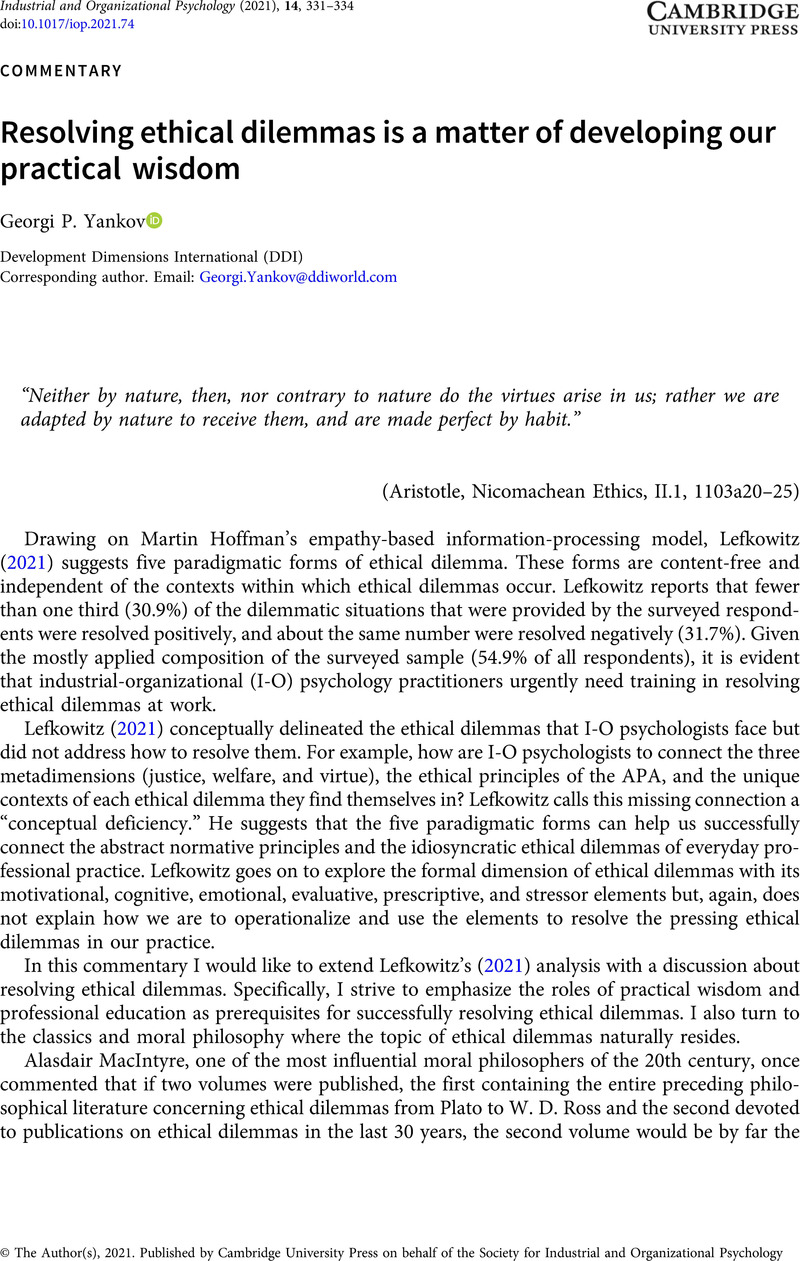No CrossRef data available.
Article contents
Resolving ethical dilemmas is a matter of developing our practical wisdom
Published online by Cambridge University Press: 22 September 2021
Abstract
An abstract is not available for this content so a preview has been provided. Please use the Get access link above for information on how to access this content.

- Type
- Commentaries
- Information
- Copyright
- © The Author(s), 2021. Published by Cambridge University Press on behalf of the Society for Industrial and Organizational Psychology
References
Aristotle. (2009). The Nicomachean ethics. (D. Ross, Trans., introduction and notes by Lesley Brown). Oxford University Press. (Original work published in 350 B.C.E.).Google Scholar
Donagan, A. (1996) Moral dilemmas, genuine and spurious: A comparative anatomy. Ethics, 104, 7–21.CrossRefGoogle Scholar
Foot, P. (1978). Virtues and vices and other essays in moral philosophy. University of California Press.Google Scholar
Lefkowitz, J. (2021). Forms of ethical dilemmas in industrial-organizational psychology. Industrial and Organizational Psychology: Perspectives on Science and Practice, 14(3), 297–319.Google Scholar
Lockwood, T. C. (2013). Habituation, habit, and character in Aristotle’s Nicomachean Ethics. In Sparrow, T. & Hutchinson, A. (Eds.), A history of habit: From Aristotle to Bourdieu (pp. 19–36). Lexington Books.Google Scholar
Macintyre, A. (1990). Moral Dilemmas. Philosophy and Phenomenological Research, supp. vol. 50, 367–382.Google Scholar


